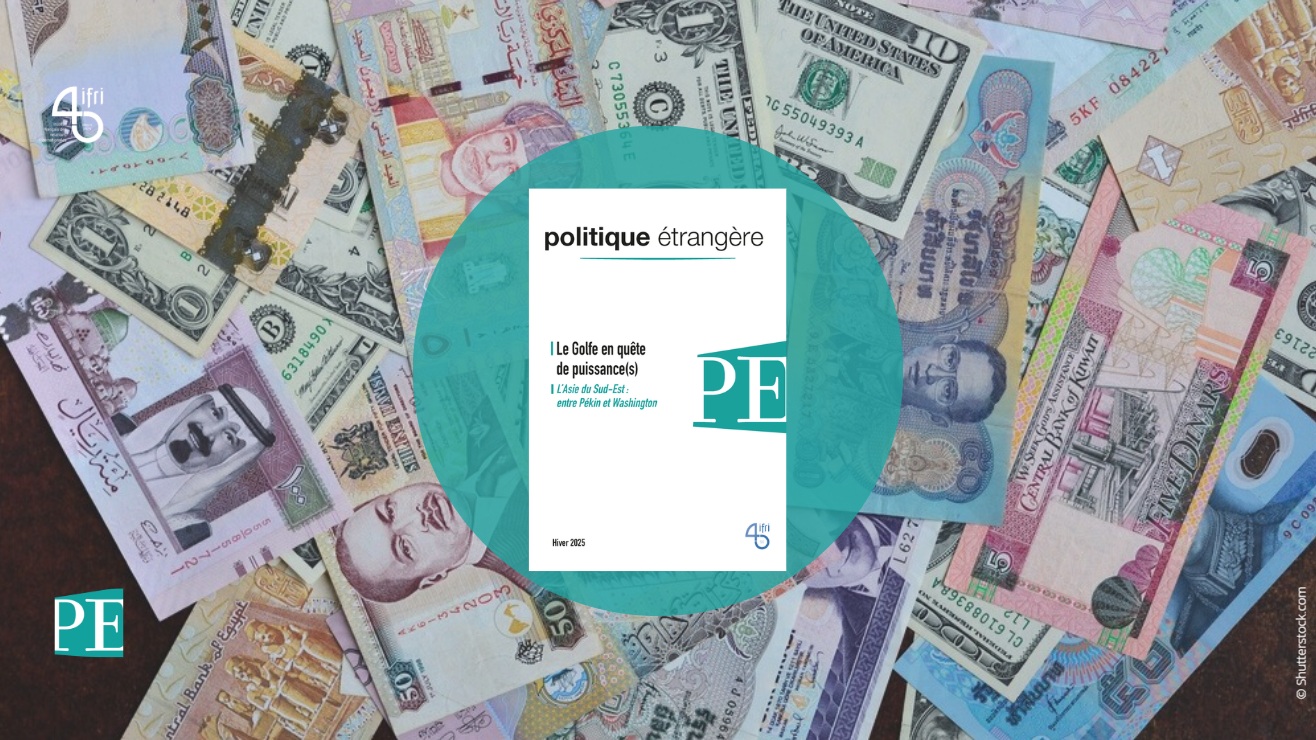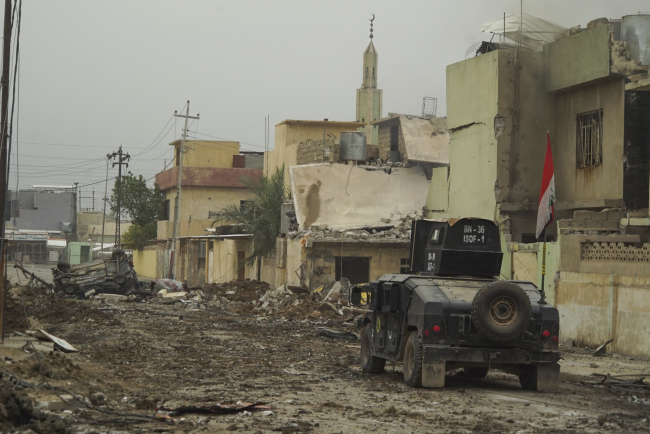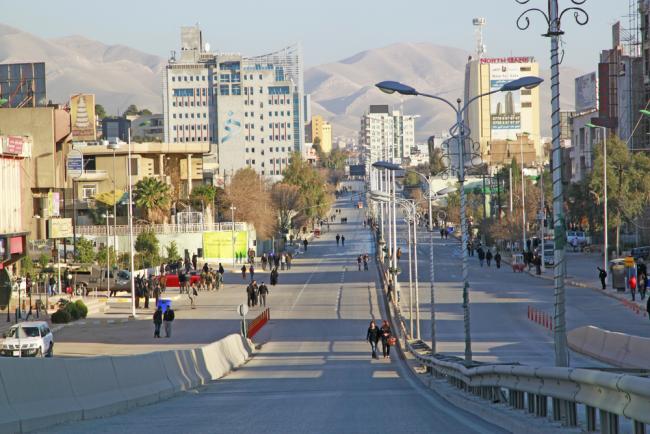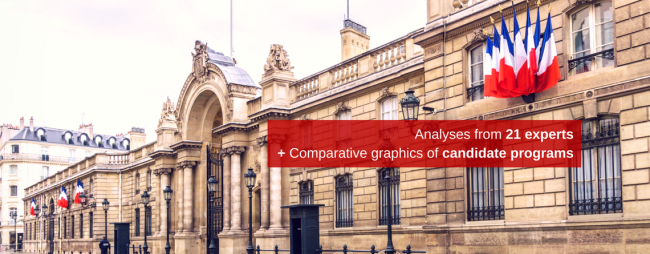North Africa and Middle East
Analysis of changing dynamics in the North Africa/Middle East region, against a backdrop of increasing security crises and their political, economic and energy consequences.
Related Subjects

Gulf Sovereign Wealth Funds: Major Actors in World Finance

The sovereign wealth funds of Gulf countries have become key players in world finance. By investing colossal sums in strategic sectors, they contribute both to local development and the growing influence of the Gulf monarchies in the global economy and international politics. In the near future, they will have to grapple with two challenges: that of human capital, and that of their geopolitical position between the Global North and Global South.

The Arctic: a Strategic Exploration
Two strategic regions are at the focus of this back-to-school issue of Politique étrangère.
A Victory to End All Victory: Iraq after the Islamic State
The offensive on Mosul against Islamic State crystallises all of the political, social and security issues which determine the future of the Iraqi state.
Three Generations of Jihadism in Iraqi Kurdistan
The aim of this report is to describe and explain how structural changes have affected three generations of jihadists in Iraqi Kurdistan: The Jihadi generation of the 1980s, that of Ansar al-Islam in the 2000s and that of the Kurds of Islamic State (ISIS) or Daesh in the 2010s.
Foreign Policy Challenges for the Next French President
France’s current presidential campaign has created an unprecedented situation fuelled by revelations and a total absence of restraint, but it has not truly taken account of the disruptions of the last year: Brexit, the attempted coup in Turkey, the election of Donald Trump, the recapturing of Aleppo by Bashar al-Assad, Xi Jinping’s declarations about “economic globalization”, or the behavior of North Korea. The debate, or rather its absence, can be looked at in two ways.
Trade without Religion between Turkey and Syria
A saying claims that trade has no religion; it even adapts to a war situation, as demonstrated by the real-time reorganisation of trade channels at the Turkish-Syrian border.
The Future Middle East Strategic Balance. Conventional and Unconventional Sources of Instability
This paper seeks to analyze the future Middle Eastern military balance of power, in a time horizon of five to ten years.
War and Democratic Decision Making: How do Democracies Argue and Decide Whether or Not to Intervene in Distant Wars?
What is the proper place and forum for decisions about war and peace in a democracy? There is surprisingly little consensus on this matter, not in theory and not in practice. While in Iraq, Libya and Syria, all Western actions have ended in failure, it seems necessary to analyze the place and importance of this aspect of the democratic decision making.

Russia in the Middle East: Back to a “Grand Strategy” – or Enforcing Multilateralism?
Russian military intervention in Syria was not an attempt to exert dominance as a hegemonic power in the Middle East.

Middle East, the new "Great Game"
Will a divided Middle East become the center of a new “Great Game”? The world’s global powers are aligned in it: the United States, falsely tempted by retraction; Russia, establishing its position in an unexpected state of play, France, destabilized by the contradictions of its own policy… In addition are tussles for regional hegemony between Iran, Turkey, and Saudi Arabia.

Kurds against IS: An Effective Military Solution?
The Kurdish military’s recent history immediately brings to mind images of its mythical female fighters, and of its real victories against Daesh. But its successes have been primarily in Syria. In Iraq, the Kurdish military has been hindered by poor preparation, lack of effective weaponry, and various political and tactical disagreements between actors. Without support from the West, Kurdish forces will not be able to win the on-ground offensive.
Libya: Old or New Picture? Risks of political uncertainty for the gas and oil business
Libya has an opportunity to get back on track. The end of embargoes and sanctions after the conclusion of the “February Revolution” is favoring a fast production growth.
U.S.-Moroccan Relations: How Special?
U.S.-Moroccan ties have sometimes been described as a "special relationship." This paper explores the bilateral relationship to investigate how special it really is.
U.S. Foreign Policy and the Israeli-Palestinian Conflict: A View from Palestine
How will the US respond to the changing Palestinian and Arab paradigm?
U.S.-Algerian Security Cooperation and Regional Counterterrorism
This paper explores the recent evolution of security cooperation between the United States and Algeria, which have forged a strong partnership on counterterrorism despite lingering mutual distrust.
Trafficking in the Sahel-Saharan Zone: Features and Stakes
On November 5th 2009, a cocaine-loaded Boeing 727 aircraft arriving from Venezuela was discovered torched and emptied on a makeshift airstrip in the Malian desert (Gao region). The Sahel-Saharan area is clearly a contact zone between very distant worlds.
Controlling Trafficking or Losing the North : Notes on Trafficking in Mauritania
Our interest in this topic stems both from our annual visits to Mauritania which started fifteen years ago, and the tiny amount of research noticed on trafficking in this country.
Strategic Stability Reconsidered: Prospects for Escalation and Nuclear War in the Middle East
Toward Transatlantic Cooperation in Meeting the Iranian Nuclear Challenge
Support independent French research
Ifri, a foundation recognized as being of public utility, relies largely on private donors – companies and individuals – to guarantee its sustainability and intellectual independence. Through their funding, donors help maintain the Institute's position among the world's leading think tanks. By benefiting from an internationally recognized network and expertise, donors refine their understanding of geopolitical risk and its consequences on global politics and the economy. In 2025, Ifri supports more than 80 French and foreign companies and organizations.











